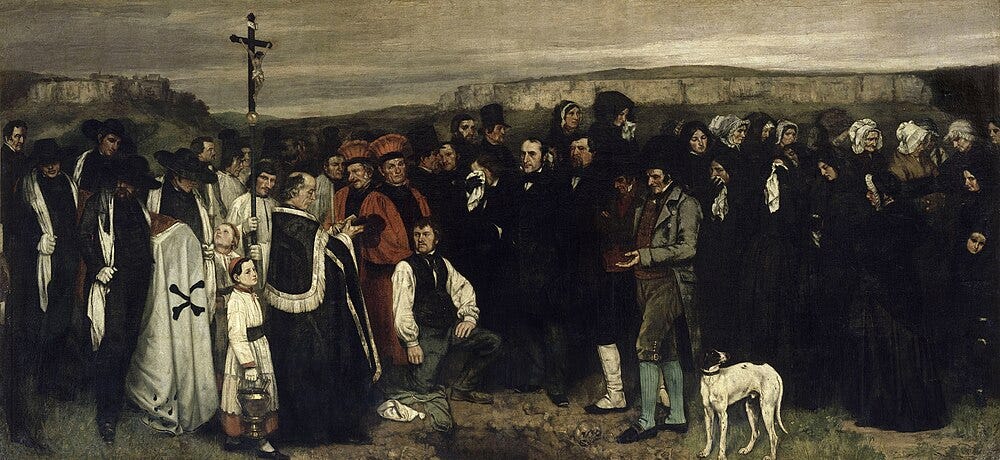Social Skills VII. The Dangers That Kill Love—and How to Avoid Them
What kills love & desire, and how to avoid it.
Welcome! The Le Monde Élégant section is a companion to The Stoic Manual to help you master people skills: the art of effortless connection, making friends, seducing lovers, swaying hearts and minds with grace, and cultivating an aura of undeniable allure with the timeless secrets of refined society, for a distinguished life. Complement this with the ‘Neuroscience-based Tools’ & ‘Lead to Win’ sections — by Dr. Antonius Veritas.
“We pick out in love only those who are capable of satisfying our senses and agonizing our hearts.” — Marcel Proust
“You’re amazing, but I just think we’re better off as friends.”
We were sitting in the back of our favorite restaurant that smelled like warmed-over pesto and old conversations. She stirred her iced latte without looking up. Then she said it. That awful, impossible sentence.
I nodded. Of course I did. Because that’s what you do—act mature and non-chalant. But inside, it was like getting stabbed with a spoon. Dull. Weirdly repetitive. And more painful than it should be. I’d much prefer to end on bad terms than just be ‘friends.’
Friends?!
This wasn’t the first time I’d been told I was great, but not what she wanted. Wasn’t the first time I heard “You deserve better.” And definitely not the first time I’d walked home from a date with that same old ache in my chest, half confused, half ashamed.
I kept asking myself what I was doing wrong. I wasn’t toxic. I didn’t play games. I drank the bad coffee she made at 6 a.m. I cleaned up nice, dressed decently, listened when she talked, practiced the entire Kama Sutra. I tried. And I mean really tried. Yet somehow, after a few weeks or months, things would collapse, either with a ghost, or a breakup text, or the classic “We need to take a break.”
I turned to my friends. My guy friends were just as lost. Solid dudes, stable careers, emotionally present—and still single, confused, and annoyed. One of them was dumped by someone who said, “You’re too good to me.” Another spent six months in a situationship that ended the second he caught feelings. So I asked my female friends. And what they said made it worse. “He just changed,” one told me, “We stopped having fun.” Another said, “He used to be obsessed with me. Then he became... indifferent.” The worst part? These weren’t chaotic relationships. They were fine. Peaceful. Their stories were mirrors of mine.
Even older people weren’t immune. Colleagues in their forties, fifties—divorced, divorcing, or quietly enduring. One told me, “We haven’t had sex in three years.” Another: “We’re just together for the kids.”
I couldn’t tell if love was just this difficult, or if I was missing something fundamental. I replayed old arguments in my head, re-read text threads, analyzed patterns. Still nothing. No culprit, no smoking gun.
At some point, I gave up. Not on love entirely, but on the pursuit of serious relationships. I got too busy. Clinic hours got longer. I was writing more. Catching flights. Trying to build something perrenial. I didn’t have the bandwidth for emotional logistics. So I opted for something casual. No relationship talk. No expectations. Just good food, laughs, light flirtation. And that’s when something unexpected happened.
They wanted to stay.
The women I saw casually seemed more drawn in. More playful. More engaged. They initiated contact. Made plans. Stayed longer in bed, lingered in conversation. Said things like, “I don’t know why, but I just feel so good around you,” and the, “I can’t stop thinking about last night.” It didn’t make sense. I wasn’t even trying. I said no more often. I wasn’t more charming or more available. I was just... less effortful. More alive.
At first, I dismissed it as luck. A lucky month. Lucky matches. But the pattern didn’t go away.
What I eventually realized wasn’t manipulative. It wasn’t about pick up tactics or mind games. It was about understanding the psychology of what actually sustains desire, connection, tension, and love. Not fantasy. Not logic. Something stranger. Something truer. It finally dawned one me that I was living in a way that didn’t suffocate connection. I connected these dots when I read the acclaimed literary author, Marcel Proust.
This essay is about that principle. Or rather, a set of them. It’s not a how-to guide, and it won’t promise you soulmates. But it will show you what I couldn’t see for years: that love doesn’t usually die from betrayal or fights. It dies from something slower—something we almost never talk about.
“Be thirsty heart,
seek forever without rest.
Let this soundless longing
hidden deep inside you
be the source
of every word you say.” — Rumi
Keep reading. Especially if you’ve ever heard someone say “It’s not you, it’s me,” even when everything seemed to be ok. Especially if you've ever wondered why something that started electric turned lukewarm. I’ve lived that confusion. But once I saw the truth behind it, my relationships became happier, more exciting and fulfilling.
Previously,
The Dangers That Kill Love—and How to Avoid Them
“Afraid of losing her, we forget all the others. Sure of keeping her, we compare her with those others whom at once we prefer to her.” — Marcel Proust
Marcel Proust’s monumental novel In Search of Lost Time offers a profound exploration of love’s paradoxes. One of its keenest insights is that the true assassin of love is not conflict, betrayal, or even jealousy, but the…
Join 42,600 other readers,



